Research

Dr. Shan Yan – 2022 Outstanding Data Science Faculty Research Award
Congratulations to Dr. Shan Yan on the 2022 Outstanding Data Science Faculty Research Award! Each year, SDS awards an SDS faculty member for their significant achievements in data science research. As this year’s winner, Dr. Yan will receive a plaque acknowledging his outstanding research contribution and a $2,000 research award that can be used to […]
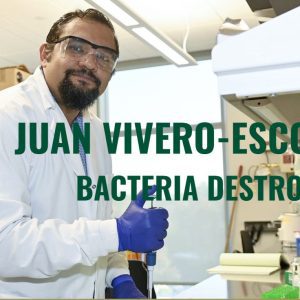
Juan Vivero-Escoto-Bacteria Destroyer
Dr. Vivero-Escoto’s lab has been quite busy and it really shows! Read below about 3 projects that have recently been funded: Project Number1R16GM145434-01 Antimicrobial resistant bacteria (ARB) and genes (ARGs) are one of the biggest public health issues of the 21st century. In this project; we propose to develop a light-activated silver nanoparticulate system for […]

Antibody Invented At Charlotte Shows Promise For Pancreatic Cancer Treatment
An antibody that was invented at UNC Charlotte could be used to curb pancreatic cancer relapse and metastasis, a new UNC Charlotte study has found. Pancreatic cancer is particularly cruel — and deadly. While it is the 10th most common type of cancer, it is the fourth leading cause of cancer death among men and […]
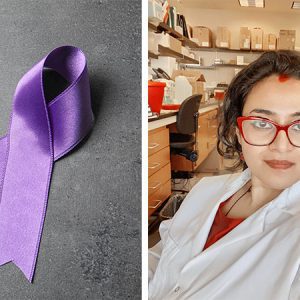
Antibody Invented At Charlotte Shows Promise For Pancreatic Cancer Treatment
An antibody that was invented at UNC Charlotte could be used to curb pancreatic cancer relapse and metastasis, a new UNC Charlotte study has found. Pancreatic cancer is particularly cruel — and deadly. Yet, there is hope for improved treatment options. UNC Charlotte researchers are among those leading the search for solutions, including research by Mukulika Bose ’22 Ph.D. and collaborators, including Bose’s mentor Pinku Mukherjee, published in the journal Translational Research.
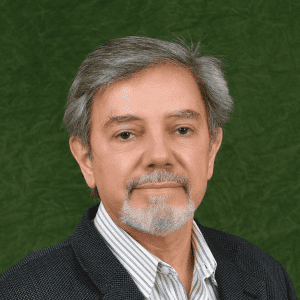
RESEARCH OF DR. MENELAOS POUTOUS HIGHLIGHTED BY SPIE
The research of Associate Professor Dr. Menelaos Poutous has recently been highlighted by The International Society for Optics and Photonics due to the valuable insights it offers surrounding the fabrication of diffraction gradings. The paper, published by Dr. Poutous and Dr. Hanshin Lee of the University of Texas at Austin in October of this year, […]
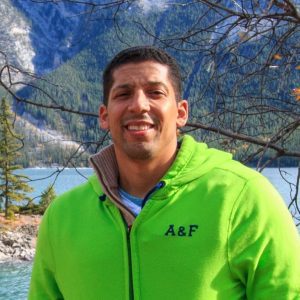
2022 EARLY CAREER INVESTIGATOR AWARD OF THE AMERICAN SOCIETY FOR HISTOCOMPATIBILITY & IMMUNOGENICS AND ITS SCIENCE & TECHNOLOGY INITIATIVES COMMITTEE
Dr. Danillo Augusto is the winner of the 2022 Early Career Investigator Award of the American Society for Histocompatibility & Immunogenics and its Science & Technology Initiatives Committee (STIC) The aim of the ASHI Early Career Investigator Award (ECIA) is to identify future research leaders who are committed to conducting impactful basic science research. This […]
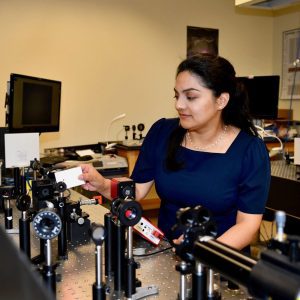
Charlotte Scientist Among Select Few To Win Scialog Support For Next-Gen Imaging Technologies
Charlotte researcher Rosario Porras-Aguilar, whose work includes a focus on learning how cancers spread, is one of 21 early career scientists in the United States and Canada to win funding and other support through the Scialog: Advancing BioImaging initiative.

Charlotte Scientist Among Select Few To Win Scialog Support For Next-Gen Imaging Technologies
Charlotte researcher Rosario Porras-Aguilar, whose work includes a focus on learning how cancers spread, is one of 21 early career scientists in the United States and Canada to win funding and other support through the Scialog: Advancing BioImaging initiative. Scialog aims to accelerate the development of the next generation of imaging technologies. Porras-Aguilar, an assistant […]

UNC Charlotte-Led Team Invents New Anticoagulant Platform, Offering Hope For Advances For Heart Surgery, Dialysis, Other Procedures
A new biomolecular anticoagulant platform invented by a team led by UNC Charlotte researcher Kirill Afonin holds promise as a revolutionary advancement over the blood thinners currently used during surgeries and other procedures. While blood clotting is important to prevent blood loss and for our immunity, coagulation also can cause health issues and even death. Anticoagulants used to reduce risks can also cause significant issues, such as uncontrolled bleeding.
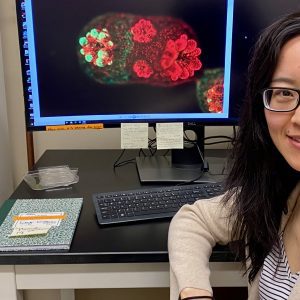
New Insight Into Coral-Algae Symbiosis Aims To Help Reefs Recover From Mass Bleaching
Corals are keystone species for reef and marine ecosystems, but coral bleaching due to climate change and ocean warming is killing them. A new open access study led by researchers at UNC Charlotte and the University of California, Riverside aims to shed light on how to reverse the damage and save corals. Tingting Xiang, an assistant professor of biological sciences at UNC Charlotte, also is faculty with the university’s CIPHER research center.